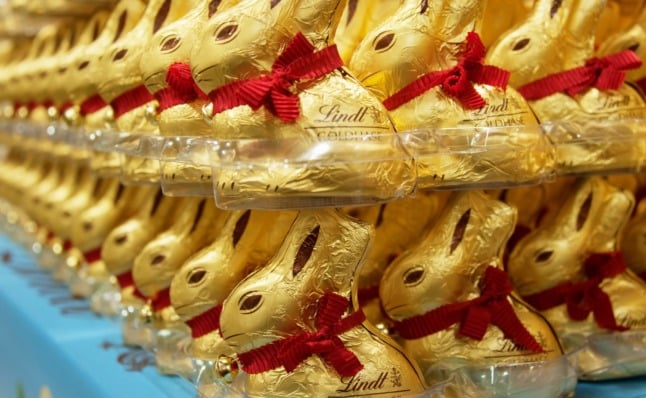Lindt had earlier taken a German chocolate maker, Heilemann, to court after it also started selling Easter bunnies in gold wrapping in 2018.
A regional court hard earlier ruled in Heilemann’s favour, but Lindt appealed and the case went to the Federal Court of Justice (BGH), Germany’s highest court of civil and criminal jurisdiction.
The Swiss firm submitted market research showing that around 70 percent of consumers associate the golden wrapping specifically with its bunnies, the BGH said in a statement.
This level of recognition “clearly exceeds the required threshold of 50 per cent” for trademark status, it argued. The latest ruling was on Thursday.
A court will now reexamine the case against Heilemann.
It must decide how likely it is that consumers would confuse the Lindt bunny with other chocolate bunnies, based on their shape and other features as well as their colour.
Lindt’s gold bunny or Goldhase is by far the best-selling chocolate Easter bunny in Germany, with a market share of 40 percent. It’s sold in more than 60 countries all over the world.
It has been wrapped in gold foil since 1952 and the exact shade of the wrapping has remained unchanged since 1994.
Lindt had previously failed to secure trademark status for its Easter bunny based on other features, such as its shape and red collar.
The chocolate giant has also challenged other confectioners from selling bunnies wrapped in golden foil.
READ ALSO: Lindt loses bunny battle



 Please whitelist us to continue reading.
Please whitelist us to continue reading.
Member comments